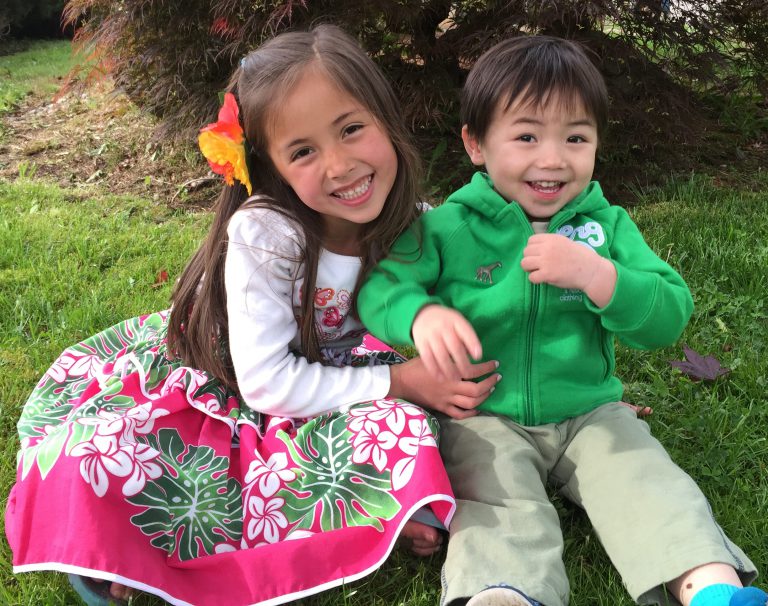Children’s Soy Consumption Linked to Increased Kawasaki Disease Risk
7.7.2016 | Seattle Children's Press Team
Some parents feed infants and children soy formula and products because they believe they are a healthy alternative to dairy, especially if a child is lactose intolerant. But new research published in the journal Nutrition Research shows that high soy consumption in infants and young children leads to an increased risk of Kawasaki disease, an autoimmune condition that causes inflammation in arteries and can result in irreversible and devastating damage to the heart.
Kawasaki disease affects about 7,000 infants and children in the U.S. each year. Although the disease can occur in children of all races, those of Asian descent are at substantially higher risk.
“It’s concerning that high consumption of foods like tofu, soy formula, edamame and other soy products is a risk factor for Kawasaki disease,” said Dr. Michael Portman, a pediatric cardiologist and researcher at Seattle Children’s Research Institute who was the lead author of the study. “This should be a concern for all families with young children, but particularly those of Asian heritage because their traditional diets use a lot of soy.”

Ewan’s Kawasaki diagnosis
Ewan Hart, 2, has chubby cheeks and loves to play with trains. But this past spring, he came down with a high fever seemingly out of nowhere and was hospitalized at Seattle Children’s when the fever didn’t come down. Doctors diagnosed Ewan, whose mother is Japanese, with Kawasaki disease.
“His eyes and the inside of his mouth were red and he had a rash on his stomach,” said his mom, Aya Hart. “We were in and out of the hospital for days as they tried to stabilize his high temperature. We are lucky that his primary care physician suspected Kawasaki disease and referred us to Seattle Children’s where we were able to get a quick diagnosis and treatment.”
Hart stopped breastfeeding Ewan when he was 1.5 years old and switched to cow’s milk, but he started having diarrhea. Hart and her husband, Ryan Hart, did some reading and elected to give Ewan soymilk, which they read was a reliable protein substitute.
“A lot of resources point to soymilk, among other milks like coconut, rice, and almond, as safe alternatives to cow’s milk,” Aya Hart said. “Now we are surprised there is research showing how soy may increase the risk for Kawasaki disease.”
She adds that in Japanese cooking, soy is in nearly every meal.
“We cook both American and Japanese food at home, so Ewan ate a good balance with moderate amounts of miso, soy sauce, tofu and edamame,” she said. “I don’t know a single Japanese person who doesn’t have soy in their fridge. It might have benefits, but I wish we would have known about the risks associated with Kawasaki disease, especially because I’ve read conflicting information about soy online.”
Risk is increased in children consuming high amount of soy
 Portman said soy has been labeled a health food, and some families turn to it thinking it is safe in any amount. But soy contains estrogen-like compounds called isoflavones that can adversely affect the immune system. The American Academy of Pediatrics recommends against the use of soy formula for infants because of these isoflavones, even if a child has diarrhea.
Portman said soy has been labeled a health food, and some families turn to it thinking it is safe in any amount. But soy contains estrogen-like compounds called isoflavones that can adversely affect the immune system. The American Academy of Pediatrics recommends against the use of soy formula for infants because of these isoflavones, even if a child has diarrhea.
“Soy might have health benefits, but not for the cardiovascular system,” Portman said. “In the 90s the Food and Drug Administration said soy was good for heart health, but research just doesn’t back that up.”
Portman conducted dietary surveys in nearly 200 children with Kawasaki disease and 200 children of all races as a control. His team found that infants and young children who consumed the greatest amount of soy isoflavones had up to a 2.5 times greater chance of developing Kawasaki disease. The subgroup of children of Asian descent who had the highest soy consumption had 7-8 times the risk compared to those who consumed lower amounts.
Portman emphasizes that while the risk is highest for infants and children of Asian descent, any children who eat significant amounts of soy are at higher risk no matter their heritage. He offers the following advice:
- Soy should not be the main source of protein for a child. “I recommend not starting any soy products until age 1,” he said. “A child should not be drinking only soymilk. Parents should go with a variety of milks if they are offering soy.”
- When you do use soy, use it in moderation. “A variety of foods is important and avoid having soy-based products at every meal,” he said. “Things like tofu, miso, edamame, soy hot dogs, soy ice cream, and soy yogurt should be consumed in moderation.”
- Vegetarian families need to pay extra attention. “A lot of vegetarian families lean on soy as a source of protein,” he said. “Replacing meats with soy is not a good idea for young children, so extra attention to a vegetarian diet is important.”
A clinical trial offers hope for Ewan
Ewan experienced some inflammation in coronary arteries that supply blood to the heart, but his condition is improving and he is getting back to his bouncy, normal self. He is enrolled in Portman’s multicenter clinical trial that will determine if the drug Enbrel helps increase the efficacy of Kawasaki disease treatments, thus reducing potential damage to the heart.
“After diagnosis and treatment, Ewan’s recovery has been swift and we’re fortunate to have Dr. Portman overseeing his care,” Ryan Hart said. “We’ll continue giving him a variety of food, as well as being creative with our meals to avoid soy.”